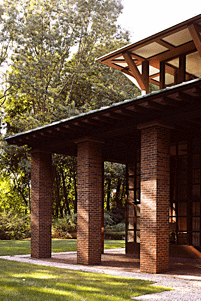
About the Academy
For over 230 years, the American Academy of Arts and
Sciences has been honoring excellence and providing service to the nation and
the world. Through independent, nonpartisan study, its ranks of distinguished
"scholar-patriots" have brought the arts and sciences into constructive
interplay with the leaders of both the public and private sectors.
The Academy was founded during the American Revolution
by John Adams, James Bowdoin, John Hancock, and other leaders who contributed
prominently to the establishment of the new nation, its government, and its
Constitution. Its purpose was to provide a forum for a select group of
scholars, members of the learned professions, and government and business
leaders to work together on behalf of the democratic interests of the republic.
In the words of the Academy's charter, enacted in 1780, the "end and design of
the institution is...to cultivate every art and science which may tend to
advance the interest, honour, dignity, and happiness of a free, independent,
and virtuous people."
Today the Academy is an international learned society
with a dual function: to elect to membership men and women of exceptional
achievement, drawn from science, scholarship, business, public affairs, and the
arts, and to conduct a varied program of projects and studies responsive to the
needs and problems of society.
The Academy's unique strength lies in the
distinguished leadership of its 4,600 Fellows and 600 Foreign Honorary Members
and the wide range of expertise they bring to its multidisciplinary analyses of
compelling contemporary issues. The Academy is probably best known to the
public through its quarterly journal, Dædalus, widely regarded as one of the
world's leading intellectual journals.
Major Academy projects have focused on the changing
nature and needs of higher education and research, the well-being of the
humanities in the United States and their central role in assuring the vitality
of our cultural life, the emerging challenges of scientific and technological
advances, geoglobal politics, population and the environment, and the welfare
of children.
Now in its third century, the Academy continues to
mobilize the intellectual resources needed to anticipate, examine, and confront
the critical challenges facing our society.
|